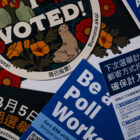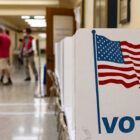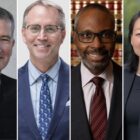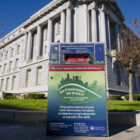Elections
Proposition B — Bonds to Enhance Health Care Facilities and Public Spaces
See our November 2024 SF Voter Guide for a nonpartisan analysis of measures on the San Francisco ballot, for the election occurring Nov. 5, 2024. The following measure is on that ballot. Proposition B would let San Francisco borrow up to $390 million to carry out infrastructure and other projects, like upgrading health care facilities, creating homeless shelter, repaving roads and renovating Harvey Milk Plaza, the Castro neighborhood spot honoring the city’s first openly gay supervisor, who along with Mayor George Moscone was assassinated in 1978. Listen to a summary of what this ballot measure would do.
















